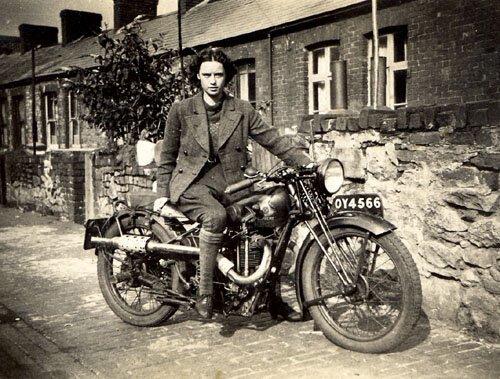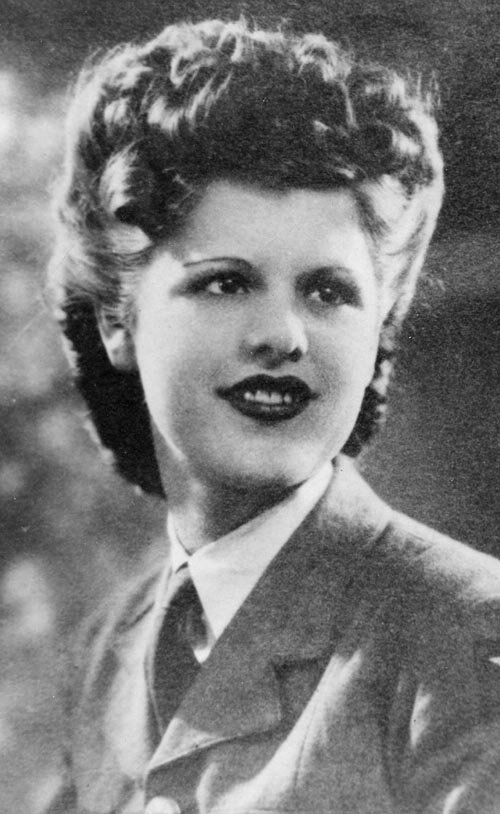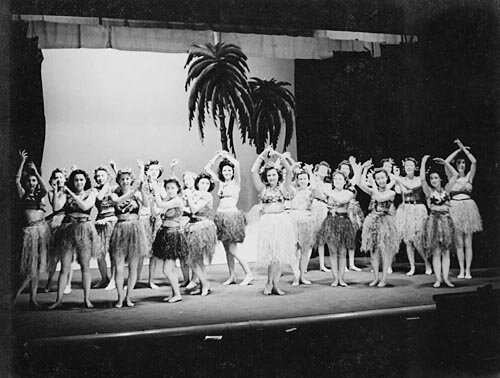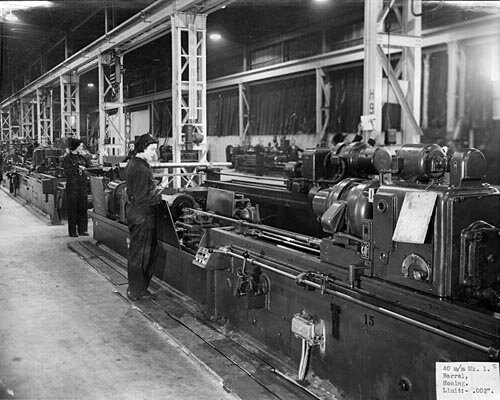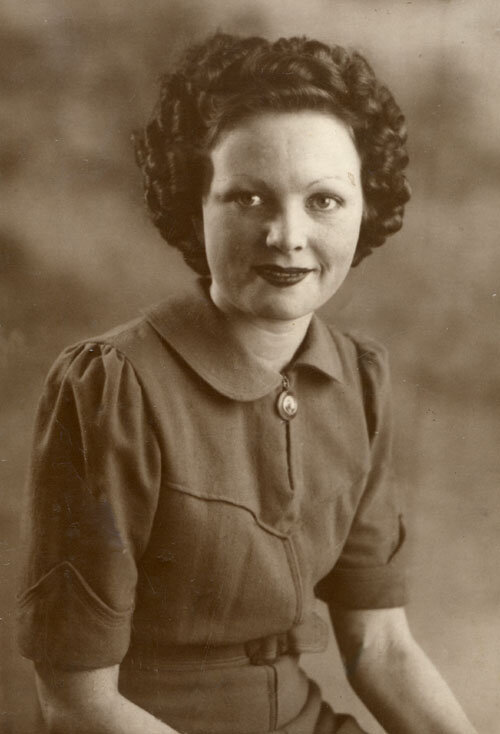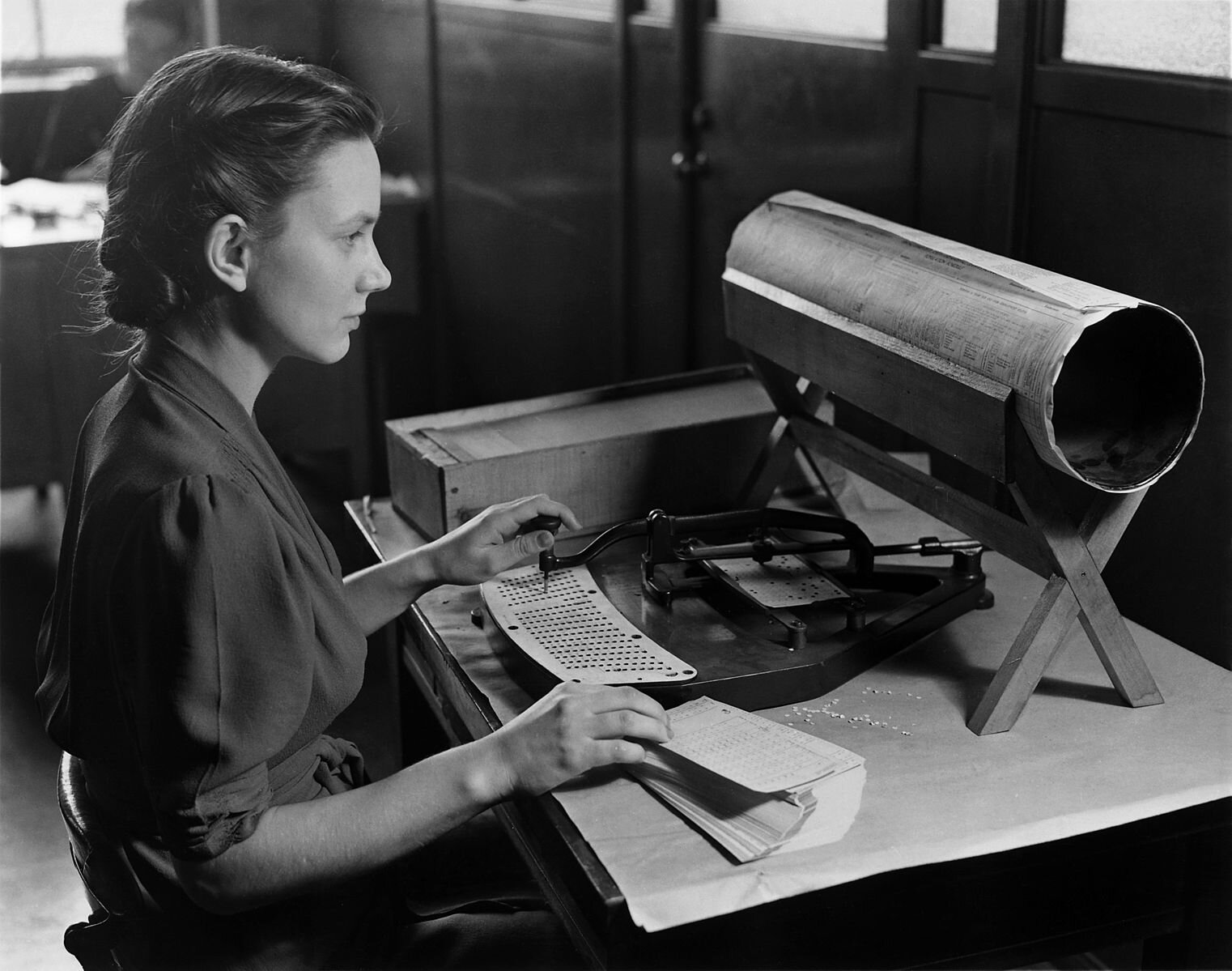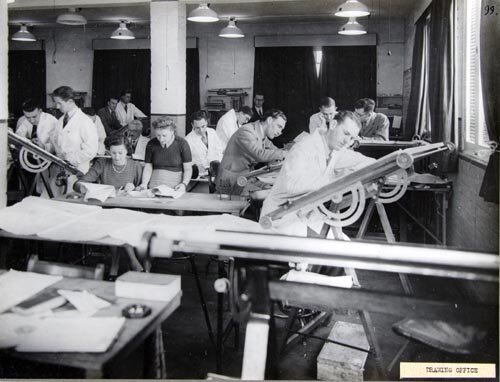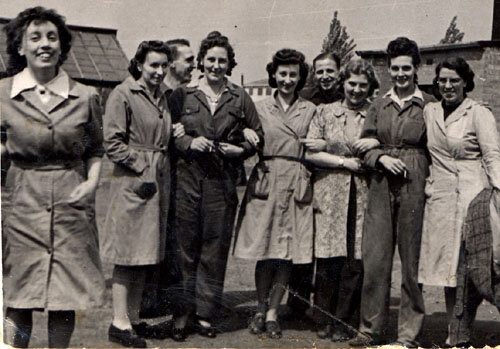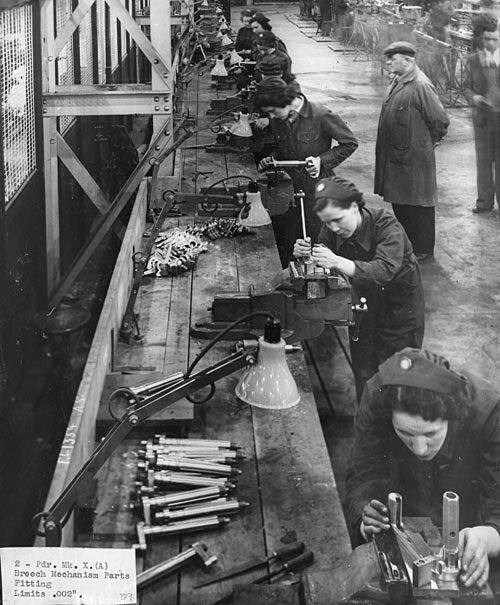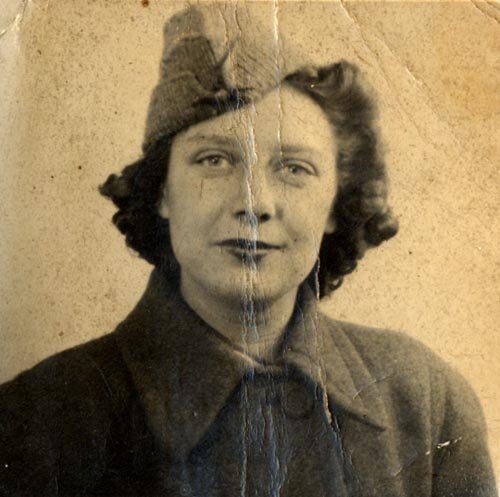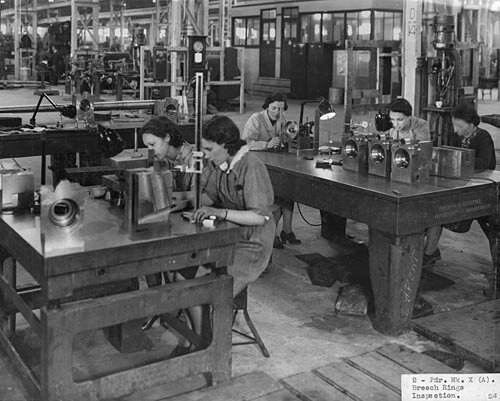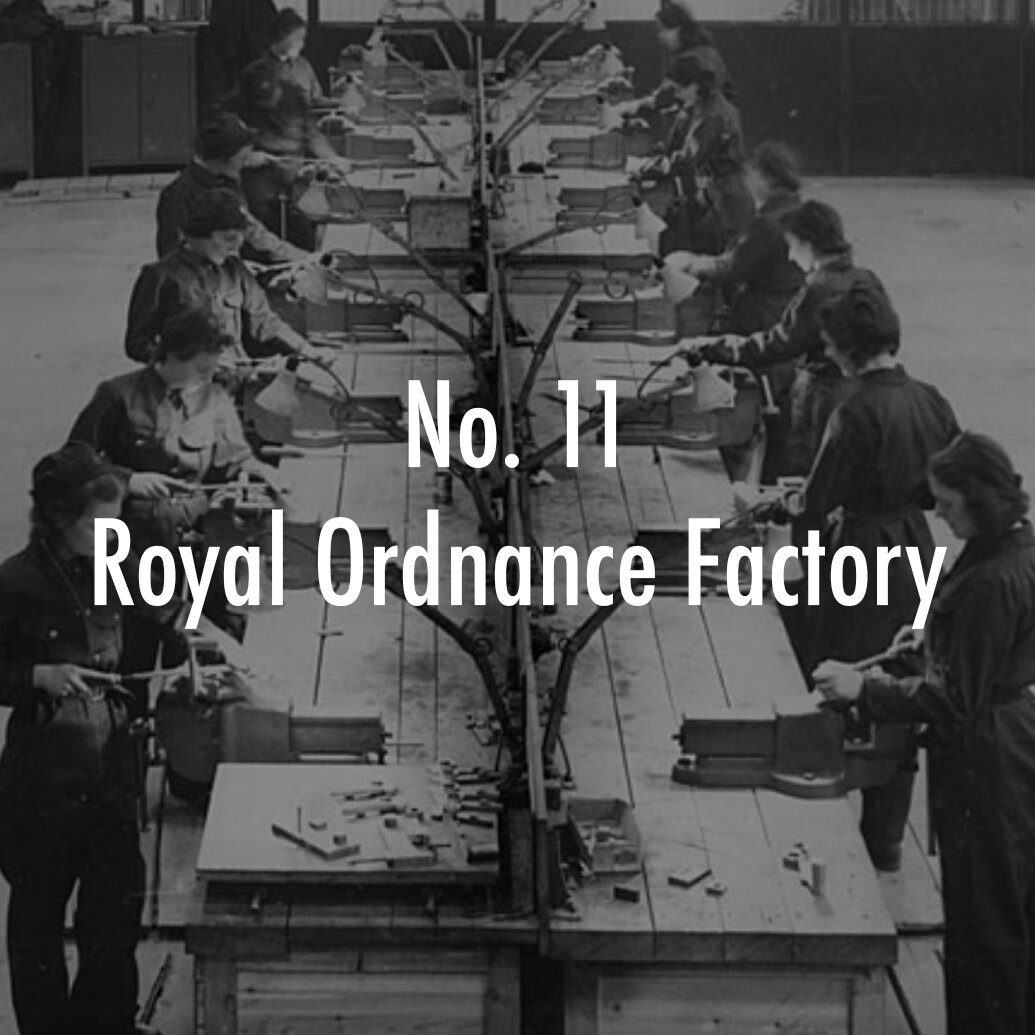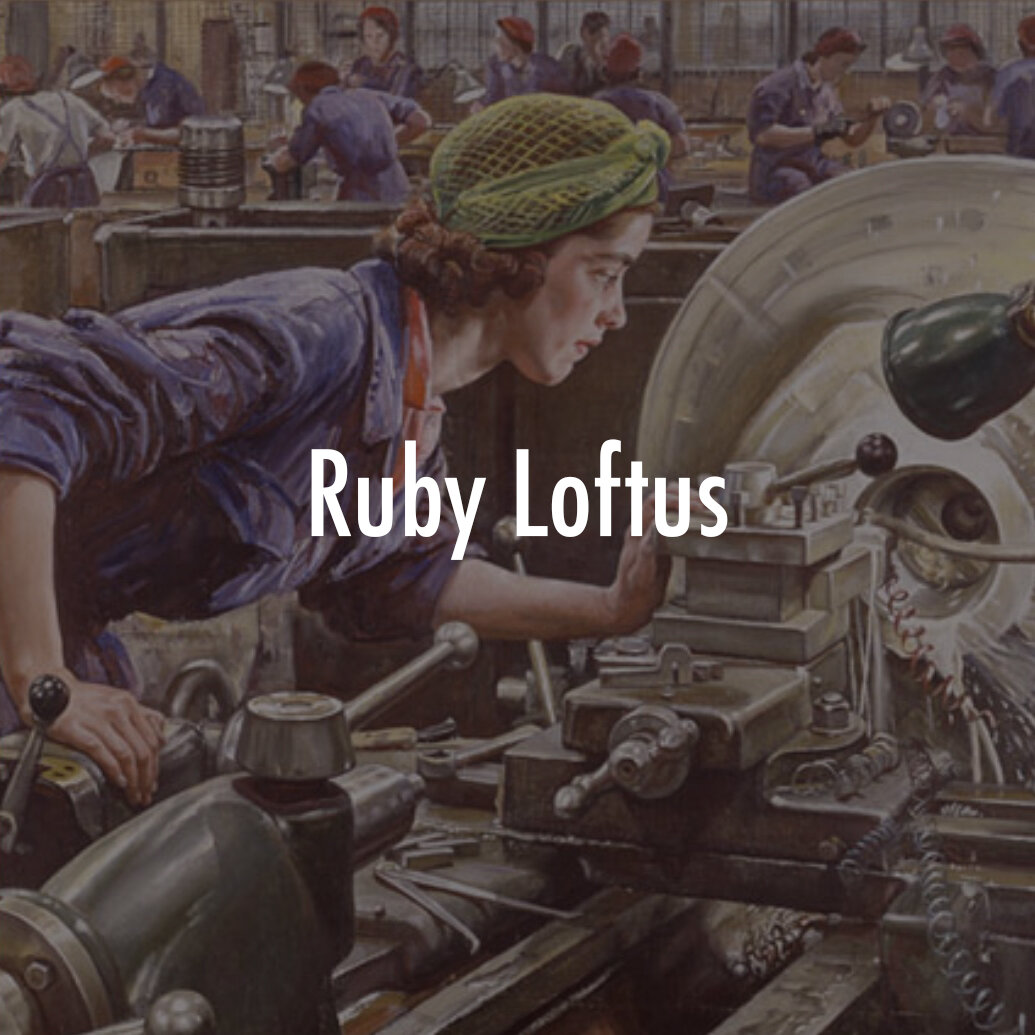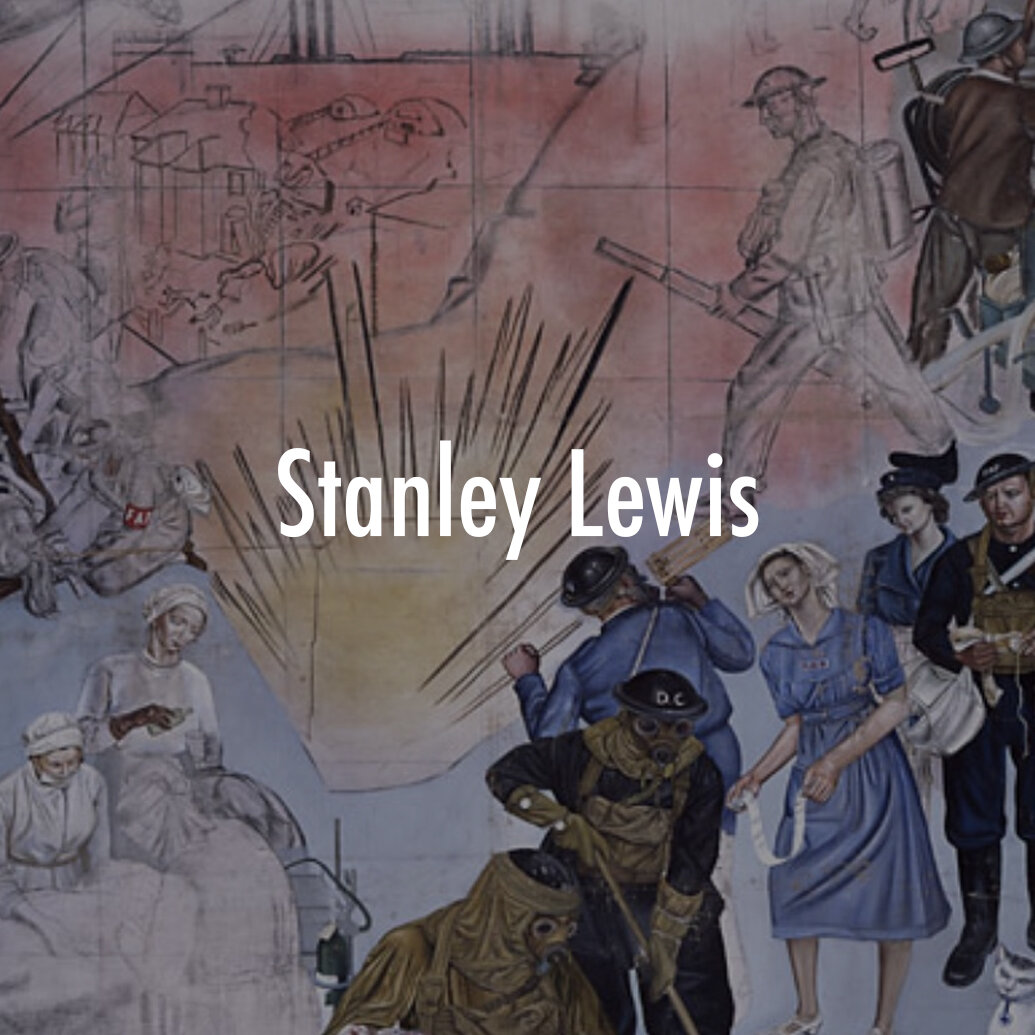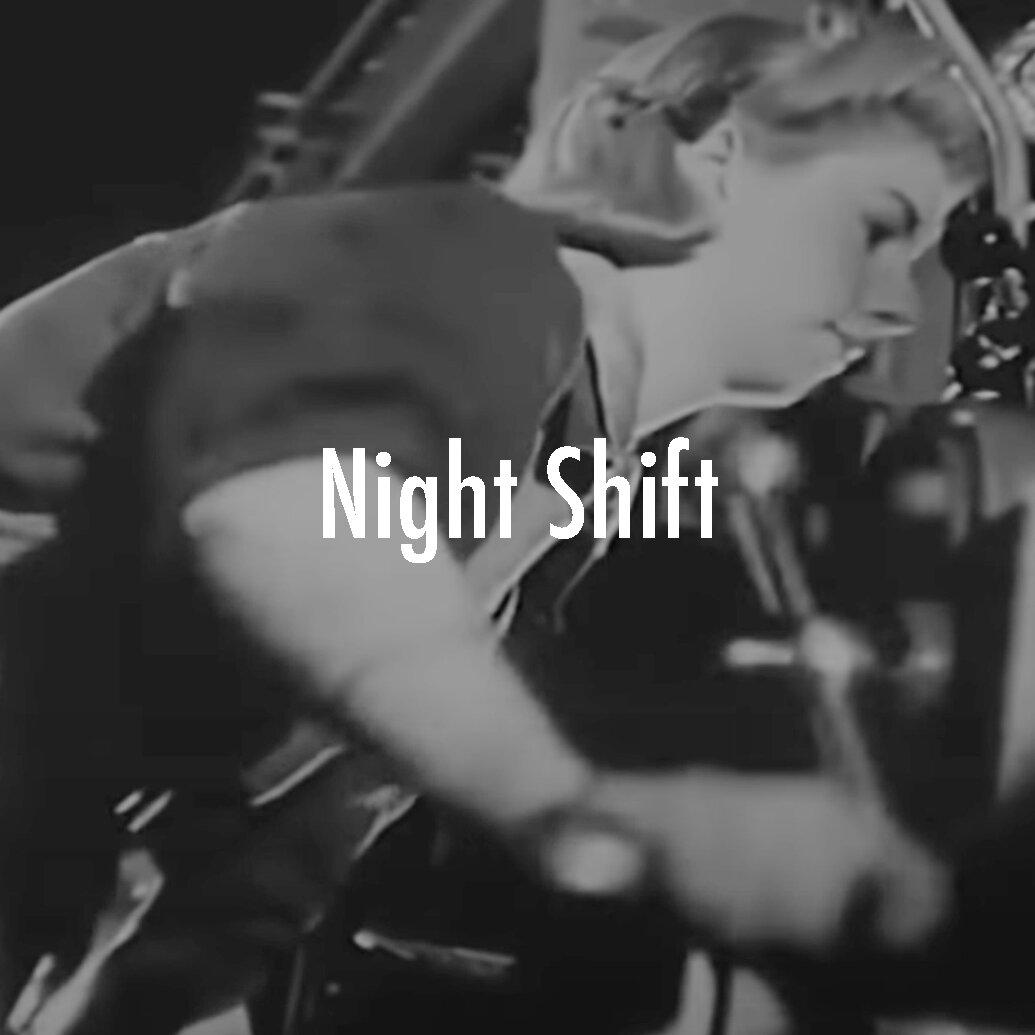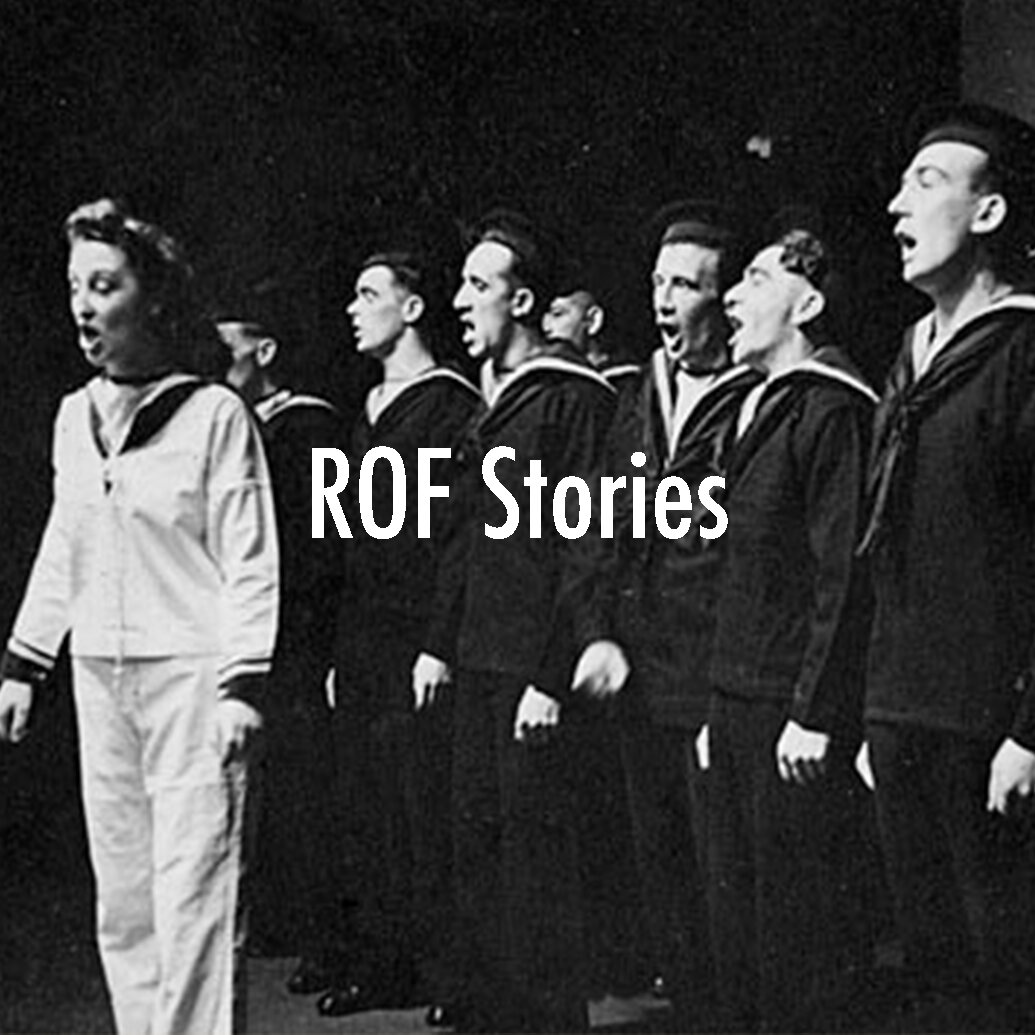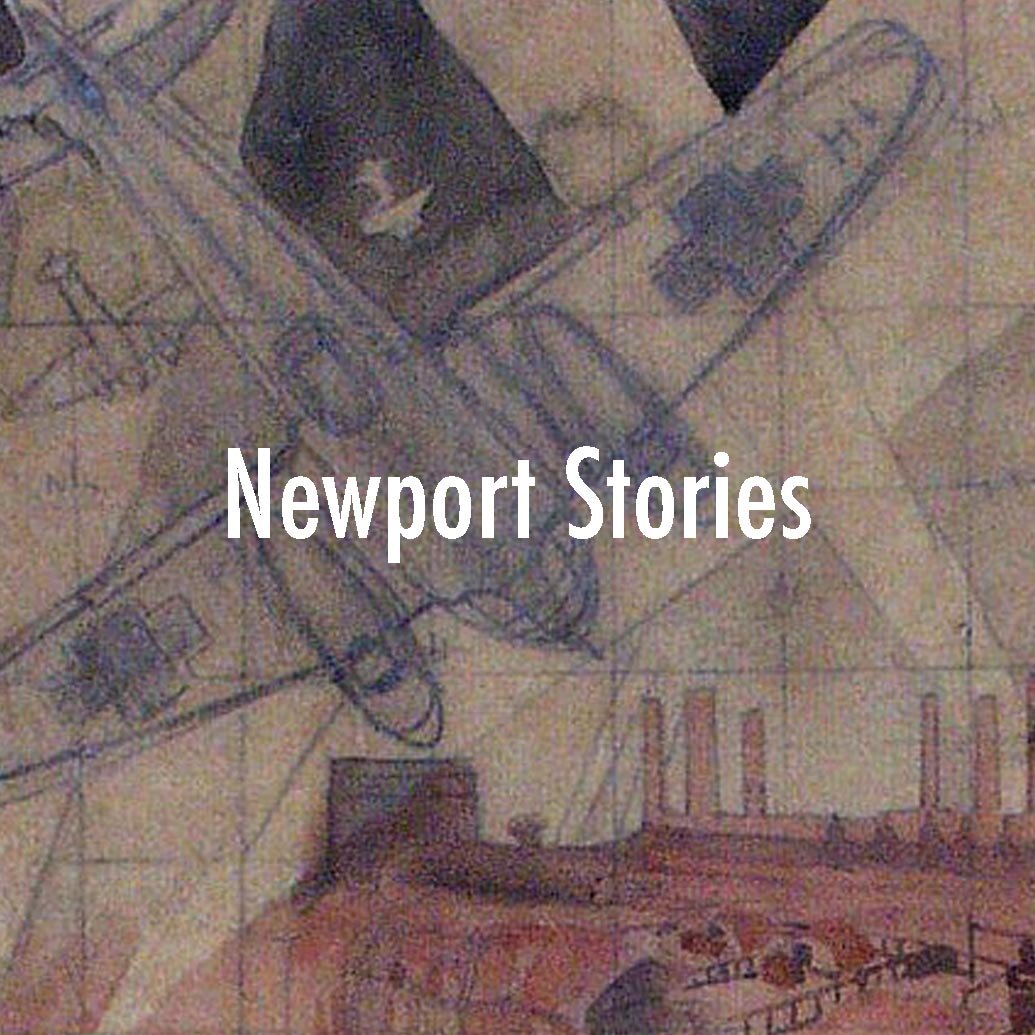ROF Stories:
Dancing & Fire Duty
After leaving school, Joan Sharrem trained as a window dresser in the Newport shops of Fanbury’s and Style & Mantles but soon found herself in factory work.
This is her story.
"At first, they just made me polish the brass in the shops and I used to tie up the customers’ parcels and boxes. On Thursday afternoons, my half day, I used to go to the company’s shops in Cardiff and earn extra money there.
I wanted to go into the Army but my father said “If you go, don’t come back”, so I went to work in the cordite factory at Chepstow. I used to set out from home in Newport at four in the morning in the blackout, without even a torch. I walked quickly and quietly to Newport station. During the war even the wheels of the trains were muffled.
We weren’t allowed to take cigarettes into the factory because of the danger of explosions, so we used to hide our cigarettes under the railway lines at Chepstow station and collect them on the way home. When there was an air-raid, we used to get into the air-raid shelters but there wasn’t much point because we used to find ourselves sitting on boxes of cordite in the shelters!
I worked there for six months. Then one morning my mother said, “You won’t be going to work today.” “Why not?” I asked. My mother told me a bomb had been dropped on the factory.
After that I went to work at the Royal Ordnance Factory in Newport and I stayed there throughout the war. It must have been in 1940 when I started because one day in September when I got home from work as usual, my mother asked me if I had seen the German pilot. A Heinkel bomber had crashed in Stow Park Avenue and the pilot’s parachute had been caught in a tree near the British Legion. He must have been hanging in the tree when I went past without knowing anything about it!
“The gun that shoots round corners”
I worked honing the barrels of the Bofors guns. There was a very good woman instructor who showed me what to do. We had to learn how to use the Vernier gauge and the micrometer. I was checking the internal measurements of a barrel one day and the micrometer got stuck. They said “That’ll be the gun that shoots round corners, then!”
Dancing and fire duty
Like everyone else, I was working two weeks on day shift followed by two weeks on nights. I made lots of friends and we had dancing and sing-songs and keep fit classes at the Factory. In the evenings, we’d go out drinking sometimes but often we were just too tired. I remember going to a concert in the canteen in the middle of night shift and once we danced on the canteen stage; we were doing the conga, just for fun. When I wasn’t working I did fire duty in Commercial Road.
My sister-in-law, Irene Wilkins, played the accordion and worked for ENSA.
Back and forth to the surgery
We used to have to keep washing our hands to try and get rid of the swarf. We were always back and forth to the surgery with cuts on our hands. (The work had to be too accurate to wear gloves.) The swarf even got into our boiler suits. We used to soak them in water in a galvanised bath but we could never get it out. I tried to wear clogs to protect my feet but I just couldn’t get on with them. We did all wear snoods though to keep our hair out of the machines. I remember mine was green.
I met my future husband at the Factory. Bill Duffield, born in Maindee, had served a five year apprenticeship at Godins. When the war broke out he was working in Windsor. When he came to ROF Newport he went to work in the tool shop. He was very good at his job and became tool room manager. He had a great respect for the Superintendent, Mr Galbraith.
People were screaming
When the bombs fell in Eveswell, we heard the siren and went to the shelters. People were screaming as the bombs exploded; some of the Factory workers lived in Eveswell.
My family didn’t do too badly for food, in spite of rationing. We had an allotment and a couple of chickens in the back yard and my uncle used to keep pigs. We also had a friend who worked at the King’s Head Hotel who used to get leftovers for us. And the Americans were very generous; they always had oranges.
My father was a foreman on the hydraulics in Newport Docks and one American gave him a chicken to take home and cook. So my father invited him home for the meal. After that I went out dancing with him once or twice. Although my father had an important job, I was earning more than he was!
When I married Bill after the war, our wedding breakfast consisted of pork, potatoes, jibbons (spring onions) and beetroot, all home produced. We were married at the Tabernacle in Newport and it poured with rain that day. Our “honeymoon” was in Newport, but later we had a holiday with my mother’s family in Mevagissey in Cornwall.
It was a hard time at the Factory but it was lovely – I made so many good friends."
- Joan Duffield (née Sharrem)
October 2005
